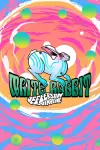
Meaning of The Other Side - Dizzee Rascal
Dizzee Rascal, renowned for his contributions to British rap and grime, possesses a distinctive style characterized by his unapologetic and raw lyricism. His music often serves as a platform to explore societal issues, personal narratives, and reflections on the music industry. Within his extensive repertoire, "The Other Side," featured in his album "Raskit," stands out as a poignant exploration of various themes, underscored by his trademark intensity and linguistic prowess.
At the onset of the track, Dizzee delves into personal grooming and societal norms, questioning the intrusion of others into his personal space. Through candid lines such as "Tell the barber stop fuckin' with my hairline" and "Why these boys keep reachin' for my plate knowin' I don't wanna share mine?" he articulates his frustration with a lack of authenticity and respect in his environment.
As the song unfolds, Dizzee extends his critique to the music industry and its participants. He scrutinizes the reliance on technology to enhance performances and challenges the authenticity of lyrical content. Lines like "Why these singers always gotta use Melodyne?" and "Why these rappers on their phone on the radio, they ain't got prepared lines?" underscore his disdain for superficiality in artistic expression.
Throughout the verses, Dizzee interweaves references to his own journey within the music industry, acknowledging his roots in grime, the obstacles he's overcome, and his ascent to prominence. These references serve to solidify his status as a seasoned artist while emphasizing the authenticity of his craft.
Furthermore, Dizzee confronts the pressure of nostalgia and the expectation to replicate past successes. While acknowledging his history, he asserts his relevance in the present, refusing to be confined by past achievements. Lines like "They're still talkin' about my old wars" and "Folklore still talkin' bout my old bars" encapsulate his acknowledgment of the past while embracing the evolution of his artistry.
Dizzee's delivery throughout the song is marked by its assertiveness and defiance, seamlessly transitioning between introspective reflection and confrontational critique. The production, characterized by gritty beats and atmospheric synths, serves as an apt backdrop to his lyricism, creating a visceral listening experience for the audience.
In essence, "The Other Side" epitomizes Dizzee Rascal's artistry and uncompromising approach to music. Through incisive lyricism and dynamic delivery, he navigates a spectrum of themes, ranging from personal identity to industry critique. The track serves as a testament to his enduring impact and influence, reaffirming his stature as a seminal figure in British music.


